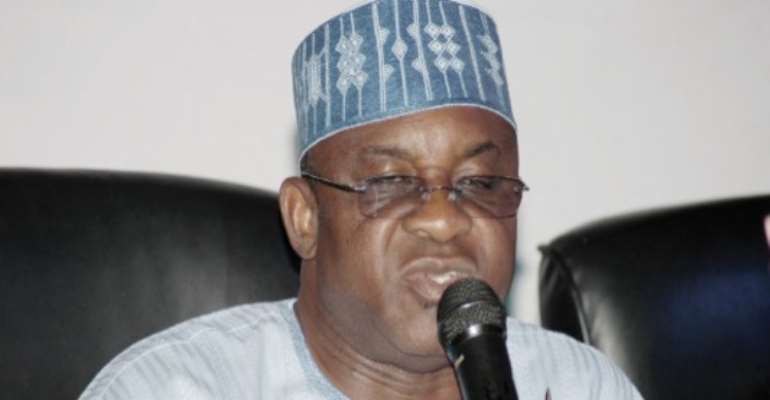Terrorism/Money laundering Bill: Jonathan Questions Senate's Reluctance

ABUJA, August 11, (THEWILL) - President Goodluck Jonathan Tuesday chided the Senate over its seeming reluctance to pass the Anti-Terrorism and Anti-Money Laundering (Amendment) bills despite his several appeals.
He expressed his anger in a letter he wrote the Senate. Though the letter was read on the floor by the Senate President, Senator David mark, no further action was taking on it.
In the letter dated August 6, the President drew the attention of the Senators to the fact that the commitment to the Financial Action Task Force (FATF) that the two bills would be passed into law on or before June 30, 2010 was not met.
The letter titled "Re: Urgent passage of Anti-Terrorism bill and the Anti-Money laundering (Amendment) bill" read in part; "Please recall my letter to you on the above subject wherein I requested the Senate to kindly consider the quick passage of the Anti-Terrorism and the Anti-Money Laundering (Prohibition) Amendment Bills, which were presented to the Senate of the Federal Republic in 2009, to enable Nigeria fulfill its commitment to the FATF and the International community.
"Mr. Senate President will also recall my meeting with the leadership of the National Assembly, during which I stressed the importance of the letter and urgency to pass the bills.
"I understand the two bills are still being worked on by relevant Committees in both Houses, which have raised certain concerns on some provisions of the bills, these, perhaps, may have been responsible for reduced momentum in the process.
"Mr. Senate President may wish to note that every provision in the draft bills presented to the National Assembly is consistent and in compliance with global instruments, which Nigeria has signed and ratified. International standards require all member-states to model their domestic legislation in consonance with global best practices. It is therefore important that the two bills, when passed into law, should meet basic global standards, failing which Nigeria will continue to be adjudged as a non-cooperating jurisdiction.
"You may also wish to be informed that the global financial watchdog is scheduled to meet again with the Presidential inter Ministerial/Agency Committee in September 2010 to review the progress made by Nigeria. It would be a huge plus for the country if the country has a positive report regarding the two pending bills.
Jonathan in the letter noted that the delay in passage of the bills "will frustrate and hamper legitimate international transactions flowing from Nigeria, some countries will not honour international financial instruments emanating from Nigeria; including letters of credit," the President said while listing some of the sanction hanging on the country.
"International investors will be scared to invest in Nigeria and those willing to do so will request for the most stringent conditions, and Nigeria’s international image will be highly dented as a country without the political will to cooperate in the global war on terror."
 
